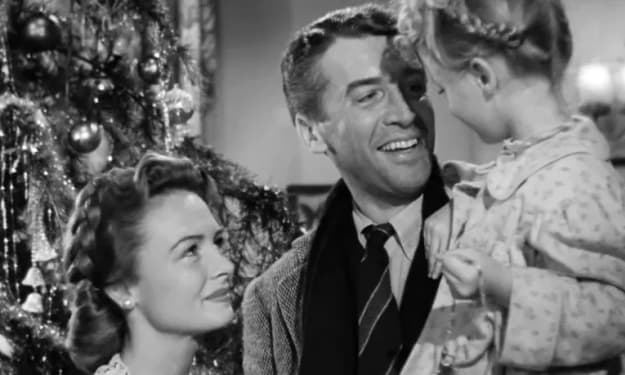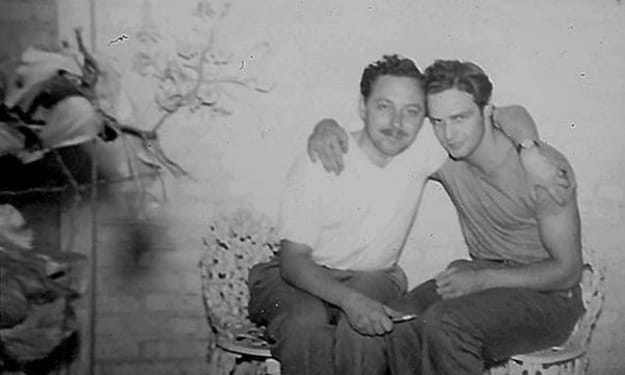Why optimists have a much better time of it
And I should know, because I became one

I don’t want to seem pessimistic, but a lot of people won’t be reading this. It’s the word “optimists” in the headline. Puts them off.
Why, they’re thinking, waste time reading about optimism when we all know the world’s a miserable place and we’re all going to die in the end?
I beg to differ. Apart from the second bit, because even the most optimistic of us have to concede their point on that one.
No, the way we see the world has a lot to do with glasses: not whether a glass is half full or half empty, as the cliche goes, but the glasses - real or metaphorical - that we peer at the world through.
Are they rose-tinted, as the pessimists would have it, or are they crystal-clear, as the pessimists claim their own to be?
Pessimists will even have trouble with the last sentence because, being cynical about the motives of all profit-driven business people, including ophthalmic professionals, they believe their opticians “see them coming”, as in viewing them as easy prey to be manipulated, exploited, and over-charged.
But I digress.
Presented with exactly the same situation, or set of facts, optimists and pessimists will see things differently.
And the choices we make as optimists or pessimists can be a major influence on whether our lives turn out better or worse than we’d expected.
Take gambling, for instance. Not the all-consuming, home-losing, life-wrecking forms at the extreme end, but those everyday more socially-acceptable manifestations: lotteries, football pools, and spotting-the-ball.

In the days before the National Lottery was allowed in the UK, millions of people used to dream of winning the football pools - trying to forecast the results of soccer matches every Saturday in the hope of scooping what was, even then, a life-changing jackpot.
The football results were read aloud and in full, on TV and radio, and woe betide anyone who made a distracting noise when Father (it was usually the man of the house) was checking his pools coupon.
The odds of winning that jackpot were frighteningly small - but for a vast number of people, the odds were zero. Absolute zero.
That’s because, while they dreamed of the cars and the yachts and the private jets they’d buy when they scooped the jackpot, there was just one little flaw in their plan: they didn’t actually enter.
As Vernons, then one of the biggest pools promoters, put it: “You’ve got to be in it to win it.”
And that simple truth applies to so much of life.
“I’d never win.” say the pessimists, and ensure their prediction comes true by never doing the pools, never buying a lottery ticket, and never trying to spot that elusive ball.
The rest of us, the optimists, probably won’t win, either, but the difference between us and the pessimists is that we at least have a chance of a better future, a breakthrough, a life-changing event, however infinitesimally small that chance might be.
Pessimists, sitting there in their bleakness, know for a fact that they’ll never win. They’ve made sure of that.
But we optimists know there really is a chance, however remote it might be, that we will get the knock or the door or the call on the phone or the ding in our Inbox to tell us that yes, we have won a jackpot or a major prize and our lives will never be the same again.
That’s because we optimists have something of the romantic about us. We know the world is full of woe, we know we’ll never get out of it alive, and yes, we know that even good things never last, but it’s the mere possibility of something wonderful and extraordinary happening to us that keeps us going, spurs us on, makes it worth getting out of bed in the morning.
Come to think of it, it’s surprising there are so many pessimists about.
Bearing in mind that so few people end up spending the rest of their lives with their first love, and such a high percentage of marriages end in divorce, it’s astonishing that pairs of pessimists ever consider it worth procreating at all.
Nevertheless, we can’t expect a worldwide shortage of pessimists any time soon - that would be taking optimism too far - but, in theory at least, pessimists ought to die out eventually due to apathy.
Dr Richard Wiseman, Britain’s only Professor for the Public Understanding Of Psychology - but, more importantly, a damned good, highly-engaging writer - conducted scientific studies of those who considered themselves lucky and those who didn’t, resulting in the standard book on the subject, The Luck Factor, subtitled The Scientific Study of The Lucky Mind.

I paraphrase him inadequately here, so do yourself a favour and read the original, but he discovered that the difference between those who were considered lucky and those who weren’t was governed to a great extent by how they regarded themselves.
In other words, those who considered themselves to be lucky were, generally, much more willing to grab an opportunity when it presented itself and would therefore benefit from it, appearing lucky to onlookers, while those Eeyores who considered themselves to be unlucky either ignored or didn’t notice the same opportunities, so didn’t get anywhere and were seen as unlucky.
He gave an excellent example of how people’s perceptions, given exactly the same set of circumstances, could be so different - mostly due to their innate optimism or pessimism.
The gist of it was that he invited a group of people to imagine they were standing in a queue in a bank when a bunch of robbers burst in and shot them in the arm.
How did they feel about it, his researchers asked. The answers were telling.
Some of the imagined victims described the incident as the worst day of their lives, and bemoaned their appalling bad luck.
But others, the optimists, told excitedly of how lucky they were to have only been shot in the arm when it could have been so much worse.
His conclusion, based on years of detailed research, was that those who feel lucky are more likely to appear lucky in life, while the miserable gits (he didn’t use exactly that term) who went around bemoaning their fate and telling people how unlucky they were tended to have less fulfilling and ultimately less lucky lives.
I speak from experience.
Until I was in my early twenties, I was a pessimist. I bemoaned my luck, didn’t buy raffle tickets because I knew I’d never win, and, if presented with a silver lining, would reach for the nearest cloud to wrap around it.
Then I discovered consumer competitions. I entered a draw - no skill involved - and won a fridge.
It wasn’t a life-changing prize, but the letter informing me I’d won it made me feel great - and, strangely, lucky - and it put a spring in my step all week.
I thought I might try entering some other competitions and discovered, it being the early Eighties, that there were thousands of them needing a short slogan praising the product being promoted.
I began pitting my wits against the thousands, sometimes millions of other “compers” out there as I tried to out-slogan them to win a car, a holiday or a big cash prize, and slowly, I began winning.
In 18 glorious months, I won a telephone, golfing umbrellas, a £900 hi-fi with one of the first 50 CD players to arrive in the UK, two microwave ovens, one of the first civilian satellite dishes in the country, and then the big one: a car that was worth more than my annual salary.
As each prize came in, the people around me perceived me more and more as lucky - and so did I.
As the saying goes, the harder I work, the luckier I get, but the difference between me and most of the people I knew who had never won a car was that they never thought they would, so never bothered to enter.
Thirty years later, people still remember me as “the man who won a car”, and probably think I’m a lucky so-and-so, too.
But the biggest prize of all was that entering all those competitions and being seen as lucky turned me into an optimist.

I put all that experience to good use in my comic novel A Prize To Die For - one of less than a handful of novels set in the world of obsessive comping - and my new-found ability to see the good points in any given situation equipped me well in my subsequent career as a PR consultant.
As somebody once said after the first Presidential assassination, at a theatre: “Apart from that, Mrs Lincoln, how did you enjoy the play?”
And one of the most popular manifestations of public optimism is the fact that one of the most-requested songs to be played at funerals in the UK is the closing number from Monty Python’s The Life Of Brian: Always Look On The Bright Side Of Life.
As Eric Idle put it, while enjoying a chance to be out in the fresh air despite being nailed to a cross: “It’s not so bad, once you’re up.”
• You can read Jon McKnight’s comic novel A Prize To Die For on Kindle in the UK and in the USA and elsewhere.
Meanwhile, you may wish to read some of his other utterances including these:
About the Creator
Jon McKnight
I have left Vocal.






Comments
There are no comments for this story
Be the first to respond and start the conversation.